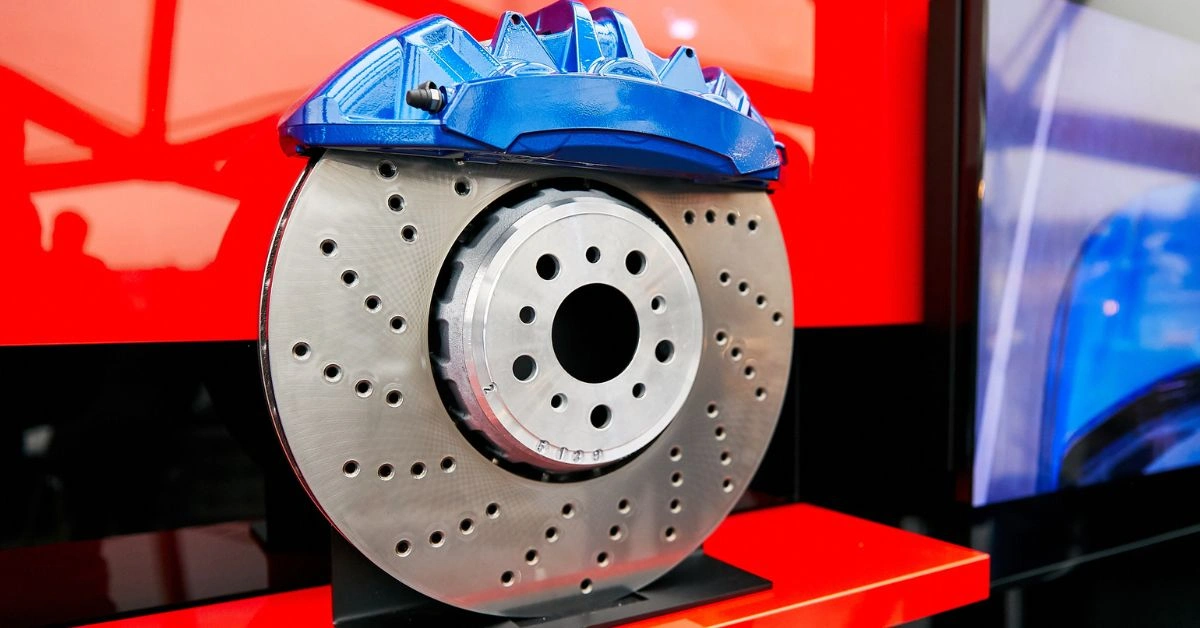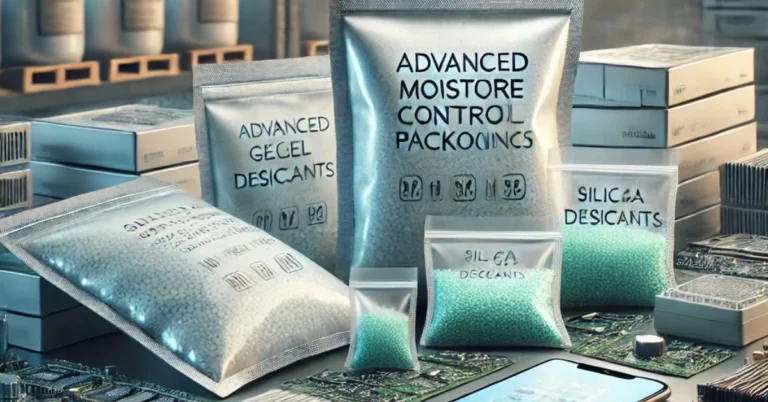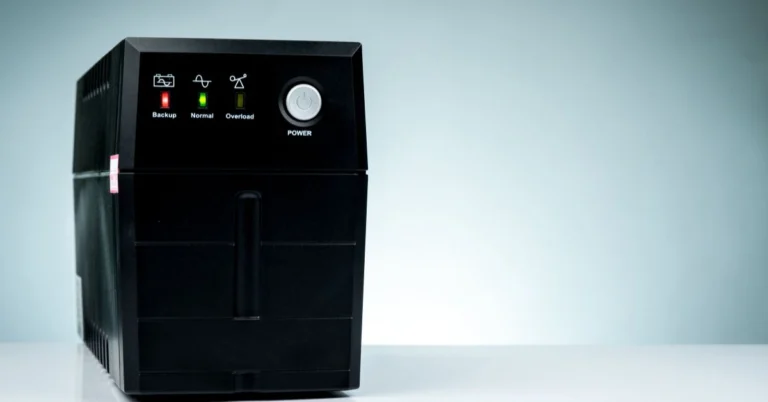Why 020BG Brake Calipers Are the Ultimate Braking Upgrade
Brake calipers play a crucial role in your car’s braking system. They squeeze the brake pads against the rotors, creating the friction needed to stop your vehicle. Without a reliable caliper, your car’s ability to stop safely is compromised.
The 020BG brake calipers are becoming a popular choice among car enthusiasts and professionals. These calipers are known for their fixed design, offering better control and precision compared to floating brake calipers. Whether you’re a casual driver or a performance car enthusiast, understanding their benefits is important.
A reliable braking system is not just about safety; it’s also about performance. For those who enjoy fast cars or simply want a smoother driving experience, choosing the right brake caliper makes a big difference. This guide will explore everything you need to know about this innovative braking component.
By the end of this post, you’ll have a clear understanding of how fixed brake calipers perform and whether they’re the right choice for your car. Let’s dive in and explore why this type of braking system is worth the attention it’s getting in the automotive world.
| Aspect | Fact | Figure/Details |
|---|
| Brake Caliper Role | Presses brake pads against the rotors to create friction and slow/stop the car. | Essential for effective braking and vehicle safety. |
| Fixed vs Floating Calipers | Fixed calipers use pistons on both sides of the rotor for balanced pressure. | Floating calipers use pistons on one side and move side to side. |
| Advantages of Fixed Calipers | Improved control, stability, and even brake pad wear. | Better for high-performance and heavy-duty vehicles. |
| Material of Calipers | Made of durable materials like aluminum or steel. | Aluminum/steel ensures heat resistance and durability. |
| Performance Consistency | Fixed calipers offer consistent braking performance. | Ideal for high-speed or performance driving with more control and heat dissipation. |
| Applications | Used in high-performance vehicles, sports cars, trucks, and SUVs. | Suitable for vehicles demanding superior braking power. |
| Cost vs Value | Fixed calipers cost more upfront but offer long-term value. | Provide enhanced performance and durability, justifying the higher price. |
| Installation Complexity | Professional installation recommended for proper alignment and safety. | DIY installation possible for experienced mechanics. |
| Maintenance Requirements | Regular inspection for wear, damage, or leaks. Clean and lubricate to ensure longevity. | Proper maintenance extends caliper lifespan and improves performance. |
| Brake Caliper Replacement | Replace if you notice uneven pad wear, reduced performance, or visible damage. | Unusual noises (e.g., squealing, grinding) also indicate the need for replacement. |
How Fixed Brake Calipers Work
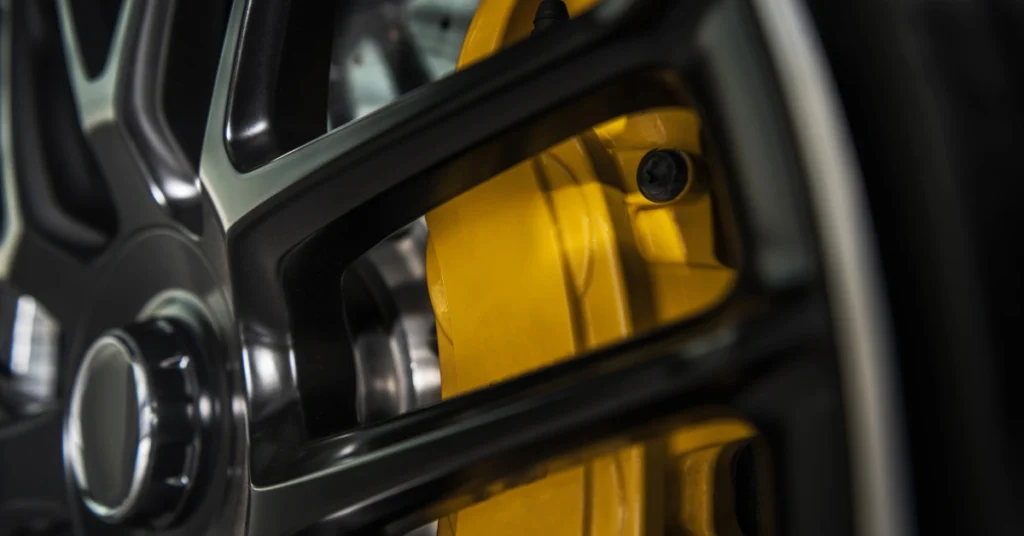
What Are Brake Calipers and Their Role in Your Car?
Brake calipers are essential components of your car’s braking system. They work by pressing the brake pads against the brake rotors to create friction. This friction slows down the wheels and ultimately stops the car.
Without calipers, your braking system would not function effectively. They are the middleman between your brake pedal and the rotors. Their job is to ensure precise and consistent braking every time you press the pedal.
The Fixed Design Explained
Fixed brake calipers belong to the “fixed” category of braking systems. This means that they are mounted in a stable position over the rotor and do not move when the brakes are applied. Instead, they use pistons on both sides to apply equal pressure to the brake pads.
This design provides better control and stability compared to floating brake calipers. Fixed calipers ensure that the brake pads contact the rotor evenly, which improves braking performance. It’s a more precise system, making it ideal for high-performance vehicles.
Key Components of These Brake Calipers
These brake calipers are made up of several important parts. The main components include the housing, pistons, and mounting hardware. The housing is typically made from durable materials like aluminum or steel to withstand high heat and pressure.
The pistons press the brake pads against the rotor. In fixed systems, there are pistons on both sides of the rotor. This ensures balanced braking force and better overall performance.
Why the Fixed Design Matters
The fixed design provides consistent braking power. It reduces the risk of uneven pad wear, which is common with floating calipers. Additionally, the design is more durable, making it suitable for heavy use or performance driving.
Understanding these details helps explain why fixed calipers stand out in the market. Their design and functionality make them a preferred choice for those seeking better braking efficiency and control.
Advantages and Applications of Fixed Brake Calipers
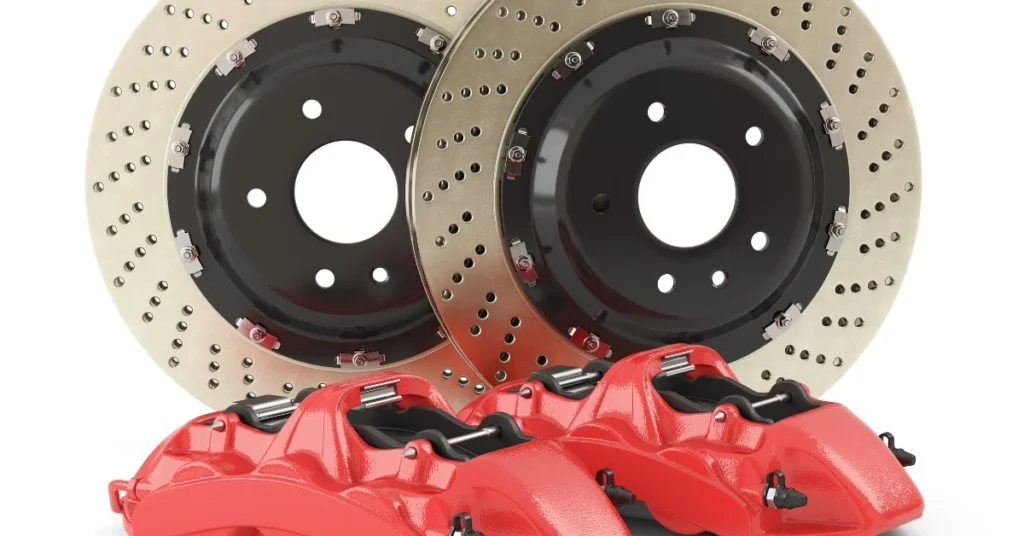
Enhanced Stopping Power and Consistency
One of the biggest advantages of fixed brake calipers is their stopping power. The stable design ensures even pressure on both sides of the rotor, improving braking efficiency. This results in consistent and reliable performance, even during sudden stops.
For high-performance cars, this consistency is essential. It helps maintain control during sharp turns or high speeds. Even for daily drivers, better stopping power means greater safety on the road.
Improved Precision and Control
Fixed brake calipers provide a smoother and more controlled braking experience. The balanced pressure from the pistons ensures precise braking every time. This is especially important for sports cars or vehicles driven on tracks.
Drivers can feel the difference in how their car responds during braking. The increased precision gives more confidence, whether you’re on a winding road or driving in heavy traffic.
Durability and Heat Management
Fixed brake calipers are built to handle extreme conditions. Their robust materials, like aluminum or steel, can withstand high temperatures from heavy braking. This durability makes them ideal for extended use without frequent replacements.
The fixed design also aids in better heat dissipation. By reducing heat buildup, these calipers maintain consistent performance during long drives or high-speed braking. This feature extends their lifespan and ensures reliable performance.
Applications in Different Vehicles
Fixed calipers are commonly used in high-performance vehicles like sports cars. They are also a great choice for trucks or SUVs that carry heavy loads. The added control and power make them suitable for vehicles that demand more from their braking system.
Even for regular cars, upgrading to fixed calipers can be a good decision. They enhance safety, improve driving comfort, and reduce the risk of brake fade.
Why They’re a Worthy Investment
Although they may cost more than standard options, the benefits outweigh the expense. Their improved performance, durability, and reliability make them a smart investment. Whether you’re a casual driver or an enthusiast, they offer long-term value.
Comparisons with Other Brake Calipers
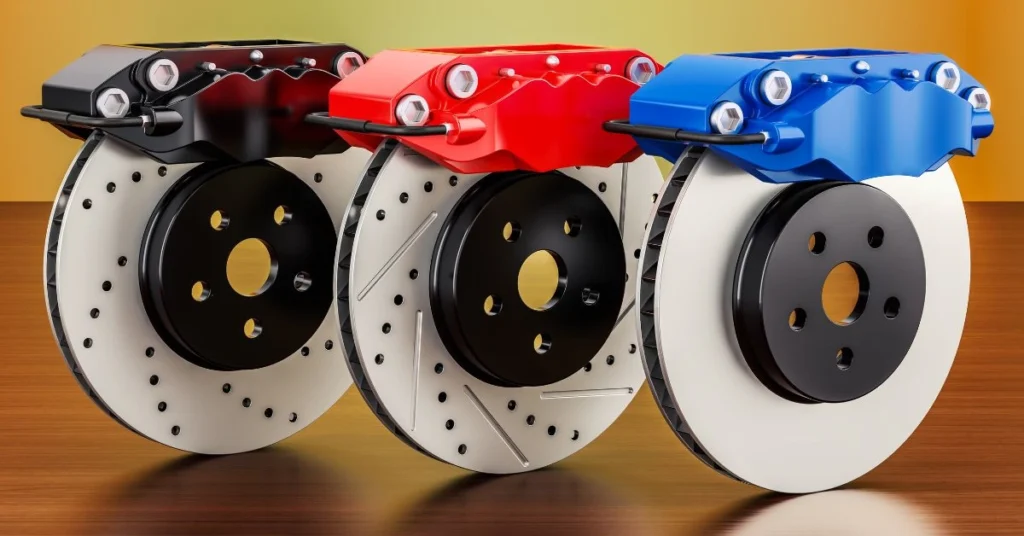
Floating vs. Fixed Brake Calipers
Floating brake calipers are the most common type of brake calipers. They move side to side to press the brake pads against the rotor, using pistons on only one side. While this design works well for everyday driving, it can lead to uneven wear over time.
In contrast, fixed brake calipers do not move. They use pistons on both sides to apply balanced pressure on the pads. This results in more even pad wear, better performance, and a more responsive braking system.
Performance Differences
Fixed brake calipers are better suited for high-performance vehicles because of their precision. They offer consistent braking power, even under intense use. Floating calipers, on the other hand, are less expensive but may not provide the same level of performance or control.
For drivers who want improved handling and safety, fixed options are a superior choice. They ensure smoother braking and better control in challenging driving conditions.
Cost vs. Value
Floating brake calipers are generally more affordable and easier to maintain. However, they may need frequent replacements due to uneven wear. Fixed calipers, while more expensive upfront, provide long-term value through their durability and consistent performance.
Comparison with Other High-Performance Calipers
Compared to other fixed options, these calipers stand out for their reliability and design. They offer the same level of control as other premium calipers but are often more durable. This makes them a favorite choice for both enthusiasts and professionals.
Which Type Is Right for You?
If you are a casual driver, floating calipers may suffice for your needs. They are affordable and work well for normal driving conditions. However, if you value precision, safety, and long-term reliability, fixed calipers are the better choice.
Buying, Installation, and Maintenance Tips
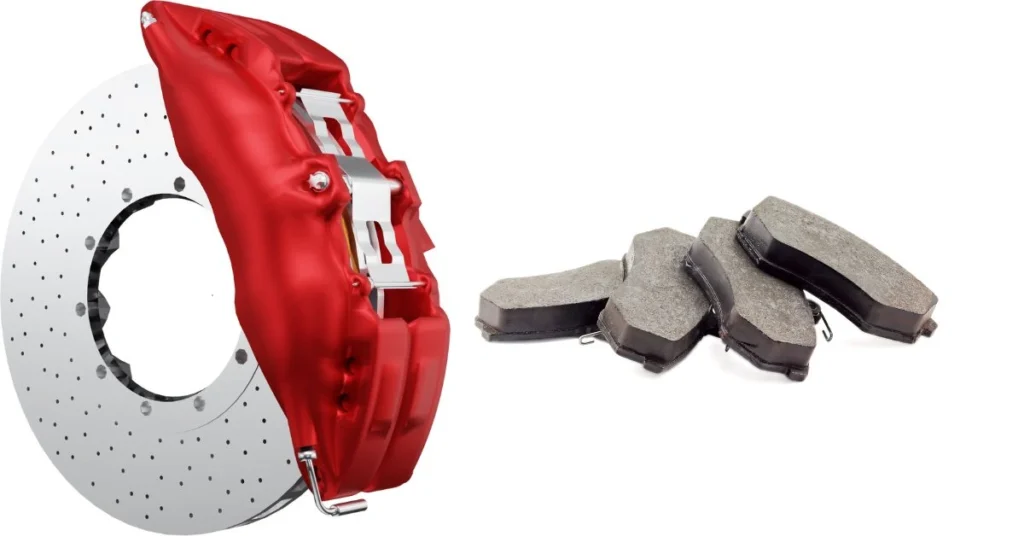
What to Look for When Buying
When purchasing brake calipers, compatibility is key. Ensure they match your car’s make, model, and brake system requirements. Double-check the size and specifications before buying to avoid installation issues.
Choose calipers made from high-quality materials, such as aluminum or steel. These materials ensure durability and better performance. If possible, look for reviews or testimonials from other drivers who have used similar products.
Should You Install Them Yourself or Hire a Professional?
Installing brake calipers requires technical knowledge and the right tools. If you’re an experienced DIY mechanic, you might be able to handle the installation. However, if you’re unsure, it’s best to hire a professional to ensure safety and proper alignment.
Professional installation guarantees that the calipers are fitted securely. It also reduces the risk of errors, such as uneven pad wear or leaks. While it may cost more, professional help can save you time and potential issues down the road.
Key Steps for Installing
Before installation, ensure your brake system is clean and free of debris. Securely mount the calipers using the provided hardware. Follow the manufacturer’s instructions to tighten everything to the correct torque specifications.
Bleed the brake system to remove any air pockets. This step ensures consistent braking performance. Finally, test your brakes carefully before hitting the road to confirm proper function.
Maintenance Tips for Long-Lasting Performance
Regular maintenance can extend the life of your brake calipers. Inspect them periodically for wear, damage, or leaks. Replace the brake pads as needed to avoid damaging the calipers or rotors.
Clean the calipers to remove dust and debris that can affect performance. Use a brake cleaner for thorough cleaning without damaging the components. Lubricate the caliper pins occasionally to maintain smooth movement.
When Should You Replace Calipers?
Replace your calipers if you notice uneven pad wear, reduced braking performance, or visible damage. Unusual noises, like squealing or grinding, can also indicate a problem. If the calipers are leaking fluid, replacement is necessary to ensure safety.
By following these tips, you can get the most out of your braking system. Proper care and installation ensure they perform reliably and last for years. Investing in quality calipers is only worth it if you maintain them properly.
Conclusion
Brake calipers are an essential component of your vehicle’s braking system, playing a critical role in ensuring safety, precision, and performance. Fixed brake calipers stand out for their balanced pressure application, improved stopping power, and durability, making them an excellent choice for drivers who prioritize control and reliability. Whether you’re driving a high-performance vehicle or simply want to enhance your everyday driving experience, investing in the right brake calipers is a decision that pays off in both safety and long-term value.
Understanding the differences between fixed and floating calipers, along with proper maintenance and installation, ensures you get the most out of your braking system. Choosing high-quality calipers, installing them correctly, and performing regular maintenance will keep your vehicle’s brakes performing optimally for years to come.
What are brake calipers, and why are they important?
Brake calipers are crucial components in your vehicle’s braking system. They press the brake pads against the rotors, creating the friction necessary to slow or stop your car. Without reliable calipers, your braking performance and safety would be compromised.
What is the difference between fixed and floating brake calipers?
Fixed calipers are mounted in a stable position and use pistons on both sides of the rotor to apply even pressure, resulting in better control and performance. Floating calipers move slightly and use pistons on one side, making them more affordable but less precise.
Why are fixed brake calipers better for high-performance vehicles?
Fixed calipers provide balanced braking pressure, better heat dissipation, and enhanced control, making them ideal for high-speed or performance driving. Their design ensures consistent stopping power, even in demanding conditions.
Are fixed brake calipers suitable for everyday drivers?
Yes, fixed brake calipers can benefit everyday drivers by offering improved safety, smoother braking, and longer-lasting components. While they may cost more initially, their durability and performance make them a worthwhile investment.
How do I choose the right brake calipers for my car?
Ensure the calipers are compatible with your vehicle’s make, model, and braking system. Look for high-quality materials like aluminum or steel for durability, and consider your driving style and needs when selecting between fixed and floating calipers.
Can I install brake calipers myself?
If you have mechanical experience and the right tools, you may be able to install brake calipers yourself. However, professional installation is recommended to ensure safety, proper alignment, and optimal performance.
How do I maintain my brake calipers?
Regularly inspect your calipers for wear, damage, or leaks. Replace brake pads when necessary, clean the calipers to remove debris, and lubricate the pins occasionally. Proper maintenance extends the life of your braking system.
When should brake calipers be replaced?
Replace your brake calipers if you notice uneven pad wear, reduced braking performance, visible damage, or fluid leaks. Unusual noises like squealing or grinding can also indicate it’s time for a replacement.
Why do fixed brake calipers cost more than floating calipers?
Fixed calipers have a more complex design with pistons on both sides of the rotor, offering better precision, durability, and performance. Their higher upfront cost reflects their superior quality and long-term value.
Do fixed brake calipers improve safety?
Yes, fixed brake calipers improve safety by providing consistent braking power and better control, especially during sudden stops or high-speed driving. Their design minimizes the risk of uneven wear and brake fade, ensuring reliable performance in critical moments.

